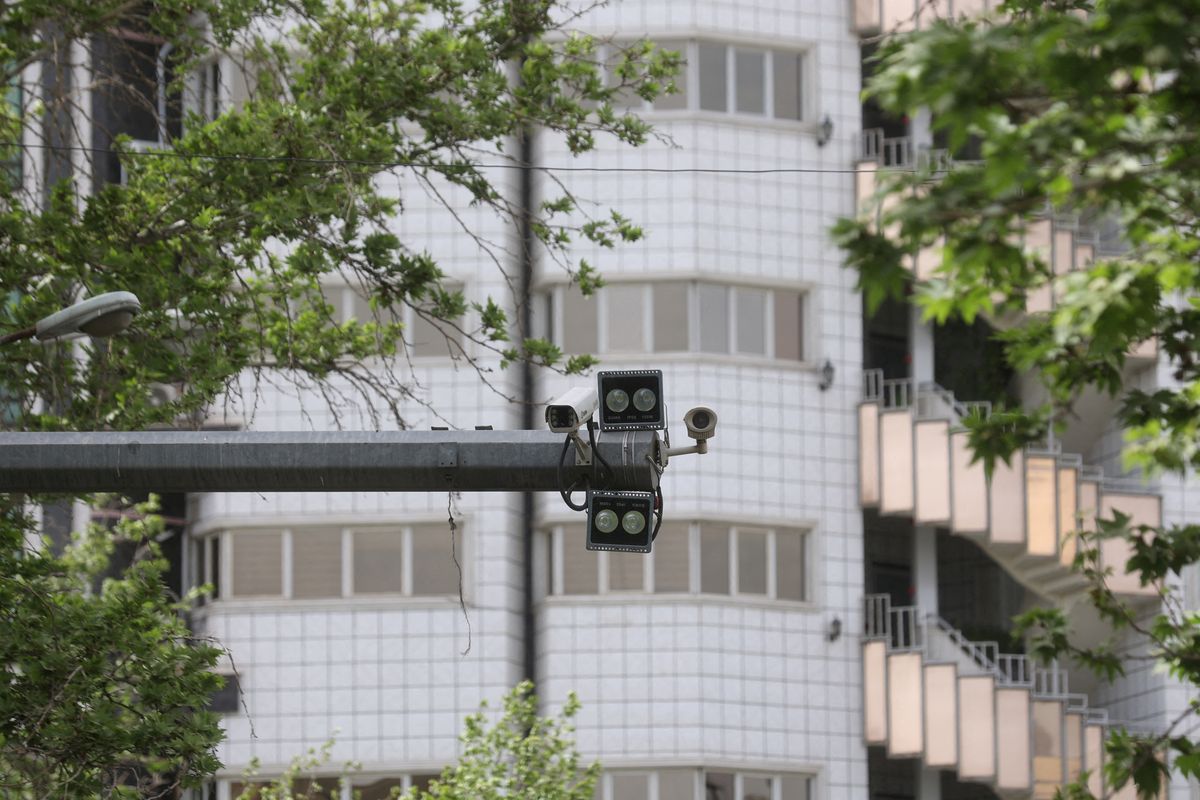Iran installs public cameras to enforce hijab-wearing
Since the 1979 Islamic Revolution in Iran, women in the country have been legally required to cover their hair.

A few minutes every morning is all you need.
Stay up to date on the world's Headlines and Human Stories. It's fun, it's factual, it's fluff-free.
The backstory: Since the 1979 Islamic Revolution in Iran, women in the country have been legally required to cover their hair. Iranian authorities see the hijab as "a religious necessity." Women who don't wear the hijab face fines and even arrest.
More recently: In Iran last year, a young woman named Mahsa Amini died in police custody after being taken in by the morality police for not wearing her hijab correctly. Since then, there have been sprawling, ongoing protests against the government across the country. And many women have been refusing to wear hijabs. Women who haven't been wearing hijabs have been dealing with harassment. For example, recently, a man threw yogurt at unveiled women at a store in Shadiz. While an arrest warrant was issued for the attacker, both women were arrested, too.
The development: On Saturday, Iranian authorities announced a new project, installing cameras in public spaces to find and prosecute unveiled women. These women will be identified and sent warning text messages about consequences, like facing public trials or having their cars impounded. The announcement also requested that business owners keep an eye out for violators of the hijab laws. The police will be able to shut down businesses where workers don't follow the hijab requirements, too.
Key comments:
"In an innovative measure and in order to prevent tension and conflicts in implementing the hijab law, Iranian police will use smart cameras in public places to identify people who break the norms," the police said, according to the Tasnim state news agency.
"Cultural problems must be resolved by cultural means ... If we want to solve such problems by arresting and imprisoning, the costs will increase and we will not see the desired effectiveness," Iran's judiciary chief Gholamhossein Mohseni-Ejei said on Friday.




Comments ()